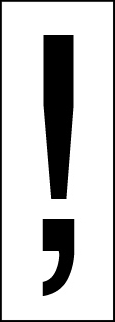Collective nouns aren’t just for animals – there are also collective nouns for people and things. Excited yet? No? Okay, how about this – did you know that ‘a flight of stairs’ is a collective noun? And a ‘baptism of fire’? (Mind. BLOWN.) So, with the help of the lovely little book ‘An Unkindness of Ravens’ by Chloe Rhodes, here’s a list of some of my favourite collective nouns. Because I know how to paaaartaaaay.
A note on the origins of collective nouns
Most of the nouns on this list have been around for yonks. They first appeared in 15th-century manuscripts called ‘Books of Courtesy’. Basically the ‘What not to wear’ of the 1400s, these were manuals on how to be a noble, designed to stop young aristocrats embarrassing themselves by saying or doing the wrong thing at court. One of the earliest of these is the Egerton Manuscript which dates from around 1450, and lists 106 collective nouns. I’m not entirely sure what collective nouns had to do with being a noble, but maybe if you used the wrong one you’d be executed? If so, that’s my kind of grammar police. Anyway, here we go…
A murder of crows
I love how menacing this sounds. And it has pretty menacing origins as well. According to Rhodes, medieval peasants saw crows (along with ravens and rooks) as messengers of the devil with prophetic powers. Seeing a crow on the roof of your house meant that you’d probably die soon (ouch) as well. So far, so sinister. But then it gets really weird. One of the other reasons they might have chosen the word ‘murder’ is after witnessing a crow parliament. This is essentially a crow court, where loads of crows gather together to apparently try one of their own. It quite often ends with the offender being ripped to pieces by its peers. I’m not even joking. Long thought to just be folklore, it’s been witnessed in modern times, as in this article. ‘Murder’ seems like the right choice after reading this.
Crows are also super clever, which possibly makes them even more murdery. They’re one of the few members of the animal kingdom that can recognise human faces, and there’s evidence that they might have their own language. I’m literally terrified of crows now.
A parliament of owls
This is a relatively new one, as it doesn’t turn up in any of the medieval manuscripts that coined most of the collective nouns on this list. In fact, it’s technically wrong – ‘parliament’ was traditionally ascribed to rooks, not owls. We can blame CS Lewis for this – he called a chapter in ‘The Silver Chair’ (my favourite of ‘The Chronicles of Narnia’, followed closely by ‘The Magician’s Nephew’) ‘A Parliament of Owls’, as it involves a group of owls getting together to discuss Narnian affairs. He nicked it from a poem by Chaucer, which is called ‘The Parliament of Fowls’ (or ‘The Parlement of Foules’ to give it its proper name – I did try to read it, but then I remembered that I hate Chaucer), where all the birds in the world get together to find mates (hmmm, I could do with organising one of those). ‘Parliament’ has now completely superseded the original (although for the life of me I can’t find out what that was, which shows how ingrained ‘parliament’ is now).
A misbelief of painters
The first human collective noun on my list, a ‘misbelief’ is exactly what it says on the tin – ‘a wrong or false belief or opinion’. It seems that this one came about because painters of the Middle Ages generally tweaked their paintings to flatter the sitter – so they’d flatten a stomach, take out the wrinkles and so on. Apparently as long as they got the heraldry and clothes right, everything else was up for grabs. So it was basically the medieval equivalent of airbrushing.
A superfluity of nuns
This one seems a bit mean, but is probably just factually accurate – when it was coined, there were apparently a shedload of nuns about. Between 1270 and 1536, there were around 140 nunneries in England, several of which were really overcrowded. That’s because going off to the convent was seen as the natural step for nobles’ daughters who’d passed marriageable age, and dads pressured prioresses to take in their girls even if there wasn’t any room at the convent (I’d so be in a convent if I’d been alive then). It might also have been a reference to the fact that the seeds of the Protestant Reformation had been planted – when this first appeared in print it was only 50 years before Henry VIII would do his dissolution thang.
An abominable sight of monks
Unlike the nun-noun, this one is mean. Basically everyone hated monks in the 15th century. They were seen as having ruined all the pagan fun the peasants were having before Christianity took over, and latterly as being too well-off and well-fed (think that guy that Kevin Costner boots out the window in ‘Robin Hood, Prince of Thieves’, although I don’t think he was a monk, but you get the idea) while everyone else wasn’t well-anything. ‘Abominable’ actually means ‘causing moral revulsion’ which makes sense in this context – I confess I didn’t know this and just thought it was something horrible. Or a big old snowman.
A shrewdness of apes
So this one sounds quite nice, right? Wrong. When it was coined, ‘shrewdness’ actually meant wickedness, and was given to apes due to a ‘playful mischievousness’ which 15th century scientists saw in them. As Rhodes points out though, it’s rather nice that now we know how clever they are (apes, not 15th-century scientists), this one still makes perfect sense today, even though ‘shrewd’ now means something else entirely.
An unkindness of ravens
Similarly to crows and their murdering, this one’s down to people being a bit scared of ravens. As carrion birds, their habits aren’t the nicest, and they were also seen as harbingers of death and destruction in medieval Britain. The name might have come from the fact that ancient writers thought they kicked their young out of the nest leaving them to fend for themselves, and also that they left their older birds to die of starvation rather than help them out (which was probably payback for the whole nest-kicking thing). I can’t find any modern evidence for this, so fingers crossed those medieval Bill Oddies were wrong. I did find that an alternative collective noun for ravens is ‘a conspiracy’ though, which is a bit nicer, though still fairly sinister.
So, there you have it. If you’re intrigued by the world of collective nouns and venery (that’s the collective noun for collective nouns relating to animals – kinda) then I thoroughly recommend Rhodes’ book. And even if you’re not, it looks very nice on the coffee table.
(I definitely didn’t have to clear mountains of crap off the coffee table before I took this photo.)

























